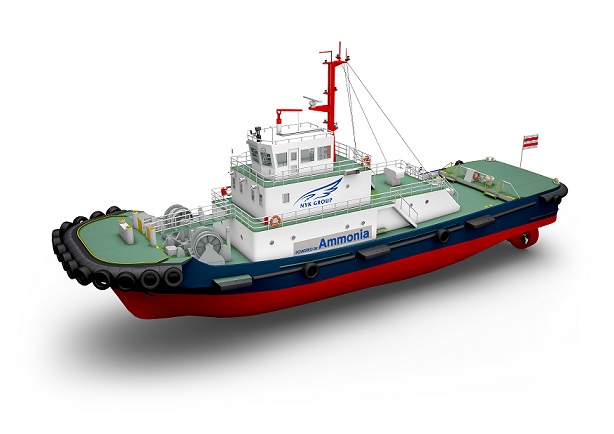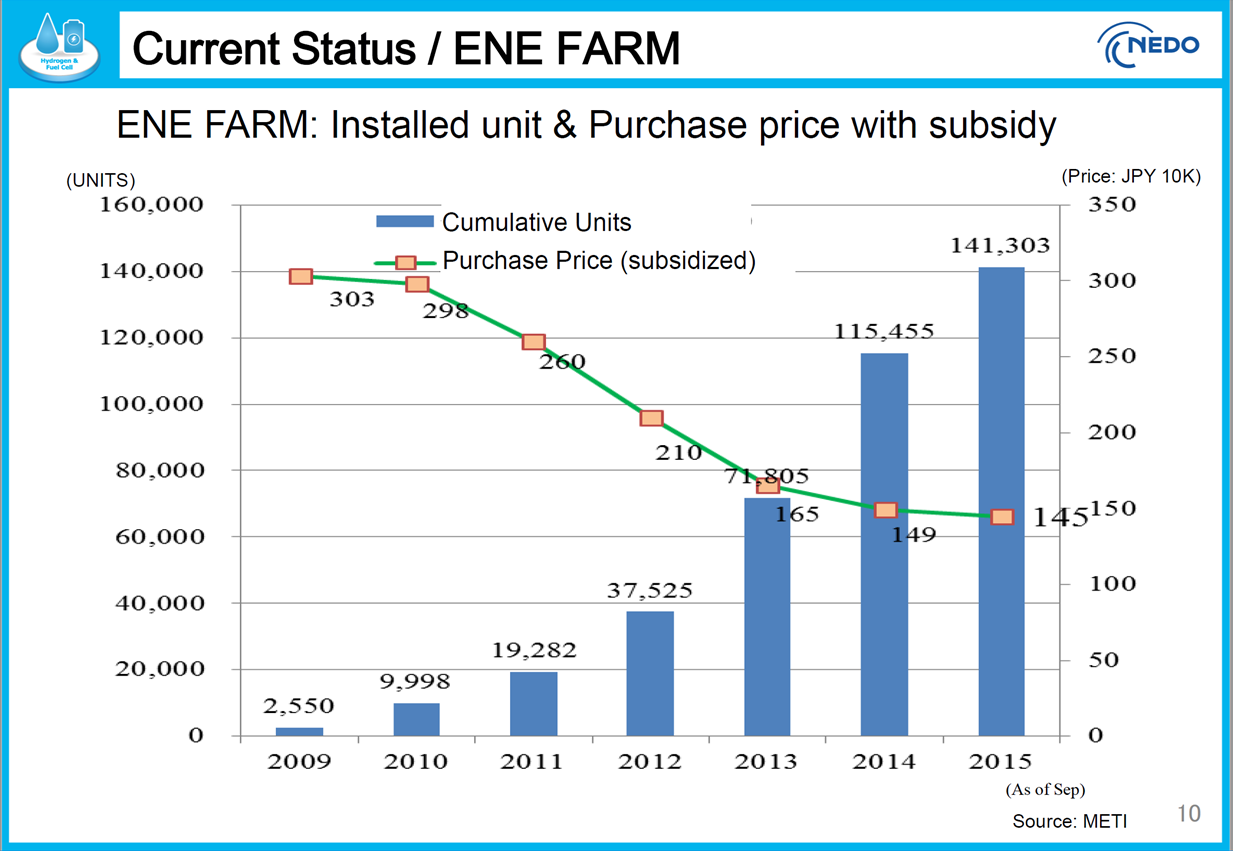In recent weeks, the Japanese shipping company NYK Line has announced a series of high-profile research and development collaborations that aim to establish ammonia fueled vessels and fuel supply. Its partners in these projects include classification society Class NK, engine manufacturer IHI Power Systems, and shipbuilder Japan Marine United Corporation. Three vessel types have been announced, so far, including an ammonia-fueled ammonia gas carrier, an ammonia barge for offshore bunkering, and an ammonia-fueled tugboat (for navigating the barge). Pushing beyond the initial research phase, these collaborations aim for commercialization and to put these vessels “into practical use.”
Content Related to Toshiba
Article
Japan's NYK and partners to develop ammonia fueled and fueling vessels
Trevor Brown September 17, 2020
Article
Renewable Hydrogen in Fukushima and a Bridge to the Future
Stephen H. Crolius October 19, 2017
On August 1, 2017 the Japan Government’s New Energy and Industrial Technology Development Organization (NEDO) announced that it will proceed with funding for the construction of a hydrogen production plant in Namie Township, about ten kilometers from the site of the Fukushima nuclear disaster. The project’s budget is not mentioned, but the installation is projected to be “the largest scale in the world” -- in other words, a real bridge to the future and not a demonstration project. The project no doubt has a variety of motivations, not least the symbolic value of a renewable hydrogen plant rising in the shadow of the Fukushima Daiichi nuclear station. In economic terms, though, it appears to be a dead end. This is unfortunate because a similarly conceived project based on ammonia could be a true bridge-building step that aligns with leading-edge developments elsewhere in the world.
Article
On the Ground in Japan: Residential Fuel Cells
Stephen H. Crolius May 18, 2017
Last week Kaden Watch, a Japanese Web site for appliance news, reported that Tokyo Gas had delivered its 80,000th Ene Farm residential fuel cell system. This small news item, delivered by a niche media outlet, lifts a critical corner of the decidedly “big-tent” story of Japan’s strategy to develop a hydrogen-based energy economy. How the Ene Farm topic develops is likely to be a major factor in Japan’s ability to sustain its hydrogen vision -- and possibly a determinant of the role ammonia could play within it.


